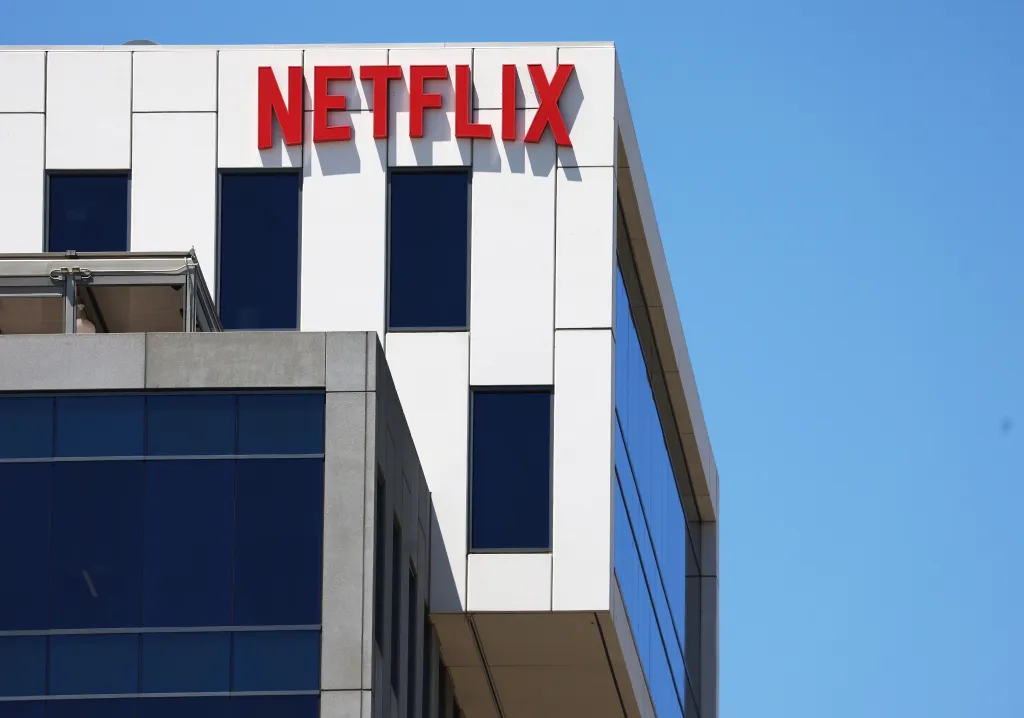
Netflix stock flirted with the $1,000 mark Wednesday, hitting all-time highs in the wake of the company’s spectacular earnings report.
In detailing its fourth-quarter financials Tuesday, Netflix said it added a company-record 18.9 million subscribers during the period to reach 301.6 million worldwide. It also exceeded forecasts for revenue and earnings per share and announced price hikes in the U.S. and other markets. Rate increases generally irritate consumers but satisfy profit-hungry investors.
Investors piled into the stock on the news, sending shares up more than 10% to as high as $999 before they settled closer to $960.
It’s a dramatic turnaround from just two-and-a-half years ago, when shares slipped below $180 after the company reported subscriber declines and appeared to be vulnerable to new streaming competitors. Since then, the company has trimmed costs and added a cheaper advertising tier as well as implementing paid password sharing. Those moves, along with an appealing programming lineup including live sports, has helped the company power through adversity to become the undisputed streaming champion.
Pivotal Research Group’s Jeffrey Wlodarczak upped his 12-month price target for Netflix to $1,250 and called the quarterly report a “blowout.” He pointed to opportunities to acquire assets (even floating scenarios like Sony Pictures Entertainment or Formula 1) and noted the strength of the company’s average revenue per user or ARPU.
“The key for Netflix going forward is to press their advantages and keep the subscriber/ARPU flywheel going,” he wrote in a note to clients, “because the larger they get the more leverage they have over their peers/content creators, the better their product gets (allowing them to drive subscriber/ARPU growth), the more cash they have to spend on compelling content and the bigger the moat grows around their core business model.”
Michael Morris of Guggenheim Securities also upped his target, to $1,100 from $950.
“As good as it gets?” he wrote in a client note. “We don’t think so.”
Along with strong viewership in December thanks to NFL football, Squid Game Season 2 and action thriller movie Carry-On, Morris said he has come to view “earlier stage initiatives—led by advertising sales, live content including sports and events, and video game offerings—as incremental contributors to sustained growth in the coming years.”
Having a strong balance sheet, unlike a few years ago when it was issuing debt to fund stair-step increases in spending, gives Netflix a number of advantages, noted Morgan Stanley’s Benjamin Swinburne. Reiterating his “overweight” (buy) rating, he wrote, “Netflix can invest at this pace AND grow margins, given the health of its overall business. This investment program is in stark contrast to its media competitors, which are to some degree limited in their financial capacity to lean into growth opportunities. Among its tech competition, returns on content investment are unclear, and streaming is in most cases an ancillary business.”
Even the more circumspect voices on the Street had to give Netflix its due. MoffettNathanson’s Robert Fishman, who has maintained a “neutral” rating on the stock largely because of its lofty valuation, acknowledged the company managed to double expectations in 2024 by adding 40 million subscribers.
“Netflix has proven itself to defy any notion of how a media company operates or grows,” he wrote in a note to clients. “Netflix has not operated as a media company, but rather as a tech company. And it is that growth mindset – and the subsequent financial results – that helps justify the premium multiple at which the stock currently trades.”
Fishman stuck with his neutral rating but upped his price target by $180 to $850, though it is still well below the level of Wednesday’s trading.
Get our Breaking News Alerts and Keep your inbox happy.


